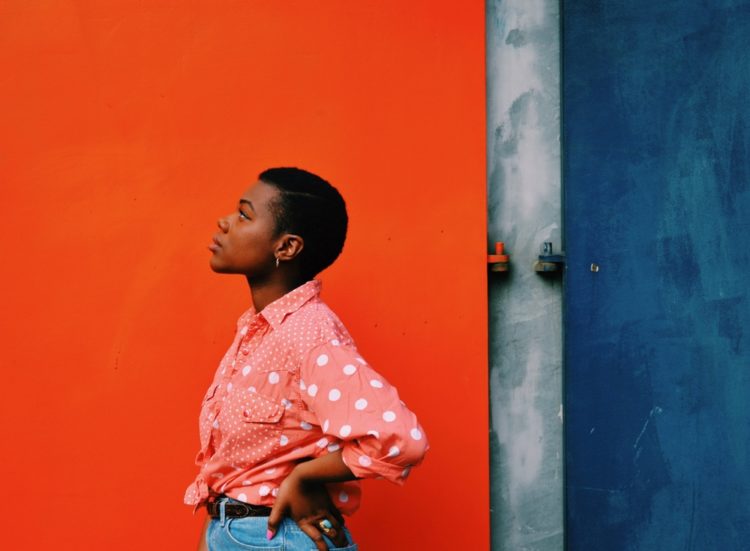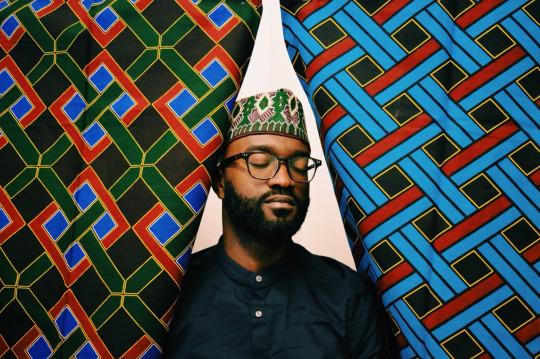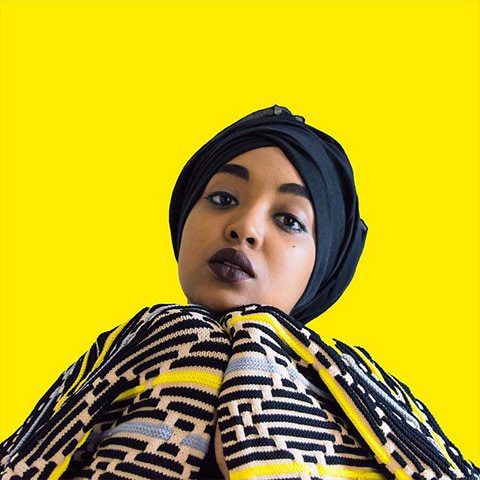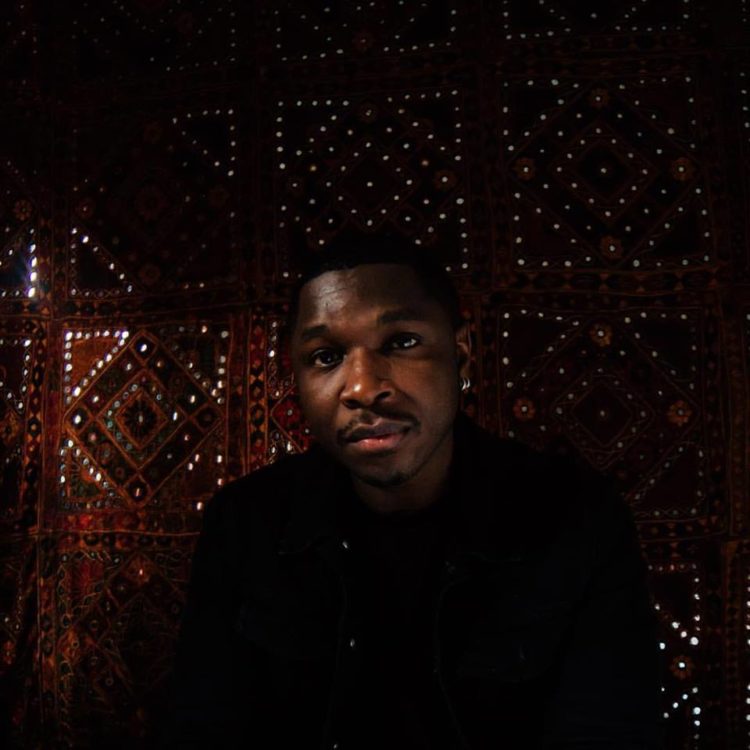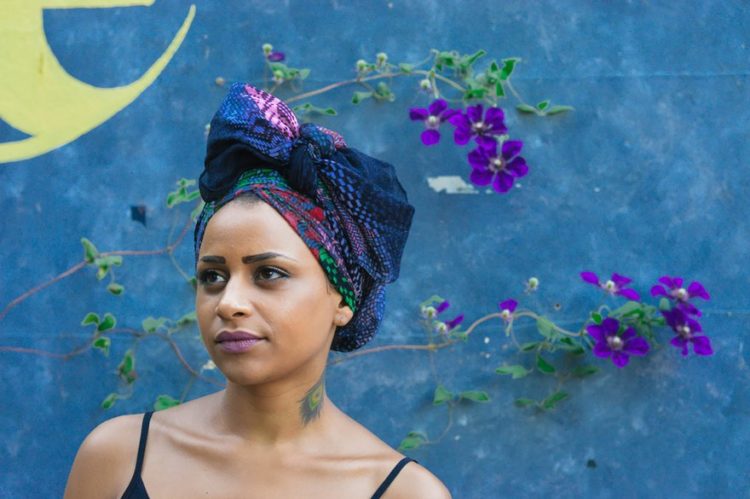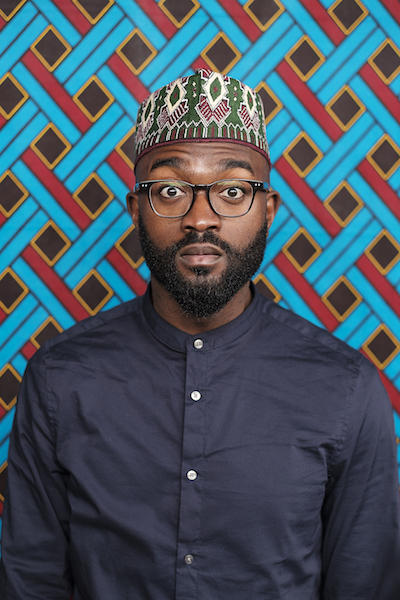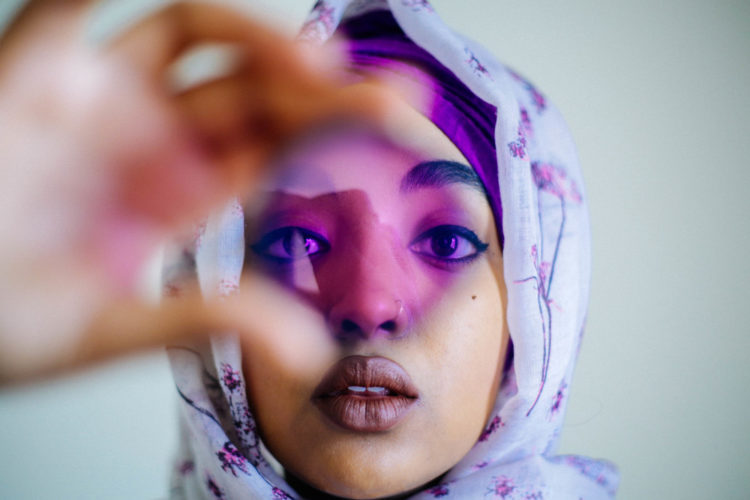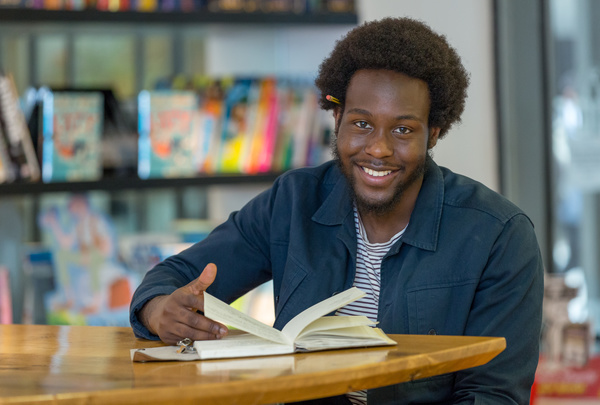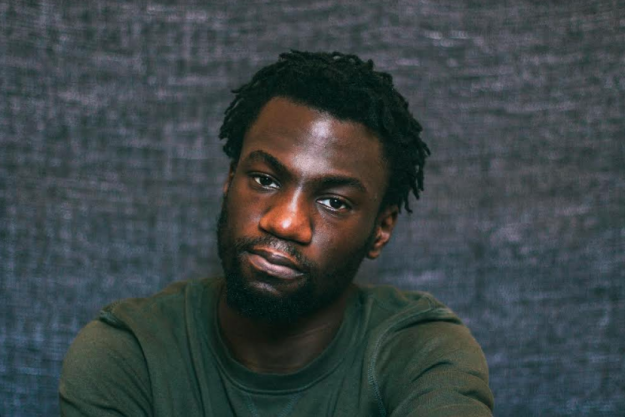For the second year running, Nigerian poets were invited from across the globe for Lagos Poetry Festival 2016. Four days were spent sharing words at readings, participating in panels, masterclasses and workshops – bridging a proverbial gap between the local and the ‘brown oyinbos’ from across the waters.
It’s really fantastic, isn’t it? Joss wonderful, wow.
On the colder side of the North Atlantic, in the UK, Black History month has come and gone, but we make history every day so it’s small small. The creative peopledem continue to box their way through the shell of Babylon’s oppression; everyone, their best friend and their cat seem to dibble dabble in the arts now, with more collectives than I can keep up with – from Born n Bread, Black British Girlhood to InBloom, SXWKS and The Decorum.
And though at times it may feel like an over-saturation of talent, millennials of colour are turning cities like London, Birmingham and Bristol into haven-like spaces to explore together, grow together, even glo’ up together.
If you hadn’t clocked, young poets are appearing more frequently on festival bills, radio stations – mainstream and underground. They’re being commissioned by TV broadcasters, online broadcasters, charity programmes/organisations and museums and maybe, just maybe, getting the attention they deserve for all their ‘big words and serious stuff’.
These brilliant African poets are leaders, doing more than just putting pen to paper.
For the first time, online music broadcaster, Boiler Room, put on a low-key lyricist night, dedicated to the art of lyricism and spoken word, and streamed that sh*t live. The legend Saul Williams and spoken-word artist, Kojey Radical headlined, while the featured acts equally held their own weight.
Then came the high-key tun up, and cypher… for poets! A cypher for poets. A poetry cypher. What?! I hope you’re as gassed as the poets in the room were that night – it’s not often these things happen, if at all.
It used to be that if you weren’t George the Poet or Suli Breaks, or shoving a hoard of covert or overt sexual double entendres in your poems, it was too refined for most people’s palate.
So that a platform with such cultural significance as Boiler Room can create a stage and space for just that and more – as a poet, writer, wordsmith or whatever, how could you not be gassed at the possibilities it holds?
No matter where in the world you are, when you’re raised by traditionally African parents, you get the ‘lessons’: ‘don’t join bad gang, face your books, become a lawyer, doctor or accountant’ etc. Dreams and daydreams must take a back seat – after all, creativity isn’t a career, lest not one stable enough to pay the bills.
And while some of us take it to heart and let our own goals and passions slide to the left in order to be more ‘practical’ with our professional choices, there are unsung heroes who shed their parents expectations like a snake shedding its skin, to completely to live for themselves.
What champions!
These brilliant African poets are leaders, doing more than just putting pen to paper. In an overly saturated media world they are using their resources and voices to inspire, question and disrupt the flow of stereotypical traditional values.
They push the need for global conversation by walking the outlawed paths our parents fear, and for anyone interested in a taste of the somewhat-rebellious life, to follow.
But in the words of D’Banj, ‘don’t gerrit twisted’, though this list may not be exhaustive, there are bags of African and Caribbean poets up and down the grey hills of Britain, from Wales to Manchester doing incredible work. This is TRUE Africa though init, so these poets are rightly so of African heritage.
British-born Nigerian writer, poet and performer, member of both Octavia and Barbican Young Poets poetry collectives, actually has time for other stuff. She’s the assistant creative director for the African dance company Adanta and one half of submissions-based photo archive project, Black in the Day.
Run alongside the techy-wiz of the duo, JoJo Sunobi, their online archive is a window into the immigrant’s experience making home on new soil. Not to say archiving of the Black British community hasn’t been done before, just, not quite like this. It’s a coming together of times, beyond social media hype – something more like waking up to the smell of plantain in the morning. It’s for the people, submitted BY the people. It’s a celebration of the Black British community’s fabulous reign bringing seasoned food, Supermalt, ginger beer and effortless rhythm and style, from as far back as the masses can provide.
You have a photo of your granny when she was a younger lass cotchin’ and whining at Notting Hill Carnival? Or your mum and dad at house party in the 80s- high-top, hair spray, leather ‘n all fly? And in the UK? You should submit. For the culture, y’know.
Have you ever heard of a scanning social before? Of course not!
A very chill hangout where you can bring any throwback photos you have for scanning, inside a chocolate house. Obviously not an actual house made of chocolate… black-owned, Dark Sugars: The Cocoa House, Brick Lane, (Shoreditch, London) are the lovely hosts that give space for the good music, good people, own the good chocolate, and it’s all just good vibes.
We're archiving images of black people in the UK, add your memories to our archive! https://t.co/ire1wCQQuY pic.twitter.com/8tvgWzmdTP
— TANDADDA (@tanianwachukwu) August 7, 2016
If you chill long enough, ya might even find yourself stop, lock and dropping well after you said you were gonna leave, tbh.
Their ingenious community ideas are rightly gathering fire – they hosted a Scanning Social as part of the galdem x V&A museum takeover, in London at the end of October. So far they’ve also featured in What’s On Africa, Buzzfeed, galdem magazine and Shades of Noir. Have a likkle read if you feel like digging further into the hows, whys and what’s next for them. Gonna be big, huge.
Real-life superman or INUMAN is a poet in demand, playwright, performer and graphic artist.
His work has been commissioned by heavyweights such as the BBC and The British Museum. Let’s throw curator in there too for good measure.
Inspired by hip hop, he runs the poetry hip-hop night RAP Party (Rhythm and Poetry) with poet Theresa Lola. It’s a party filled with hip-hop-inspired poems and favourite hip-hop songs by some pretty live award-winning poets, so the curator title is only right.
Their line-ups have included Warsan Shire, Belinda Zhawi, NY’s Aja Monet and so many others. The first #RAPParty outside London, took place in Lagos just days ago as well, courtesy of the Lagos Poetry Festival.
And speaking of Lagos, honouring Nigeria’s 56th year of independence, INUMAN curated a poetry show for arts venue, The Roundhouse (London), titled ‘The Young Nigerians’.
Yes, The Young Nigerians, we exist and we‘re very much here. The first of its kind, it’s hopefully the beginning of many big ups to the talented Nigerian poets residing in London.
Shout out to the Gothe Institute in Nigeria (@GI_Nigeria) for hooking a homie up with this. Lord knows my melanin needs more sun.
— The Typo King FRSL / FRSA (@InuaEllams) November 7, 2016
Free Supermalt was consumed, stories of returning home were shared, and poems about what it means to be a British-Nigerian were read.
A common thread of alienation or otherness felt belonging to a country that doesn’t fully claim you back, either because you left or had the audacity to be born elsewhere, weaved its way through the show.
Here’s to saluting INUMAN for allowing such an organic exploration and conversation to happen and for the international bridge between Nigerian Poets.
Inua performing ‘Candy Coated Unicorns And Converse All Stars’.
18-year-old Amaal is a Danish-born Somali photographer and poet.
A member of the Barbican Young Poets and Burn After Reading collectives, her poetry explores the idea of home, identity and what war has meant for her family, among other things.
As we know all too well the history of photography has never created photographic film that could capture black skin in all its magical, glorious detail, while black women in the world of self-portraiture photography have always been ellusive.. But no matter, her work captures the beauty just fine o.
It’s likely you’ve come across some of her poetic photographs on your Insta feed at least, if not, then the Guardian online perhaps?… Vogue maybe? Hmm??
"We deserve accurate portrayals of ourselves, for our beauty to be recognised just like others," @amaalsaid: https://t.co/ZGnG2QpyfT pic.twitter.com/XnEWzBIbyS
— i-D (@i_D) November 9, 2016
She empowers a wave of young creative people of colour, predominantly women, in the UK to take up a camera whether it be film or digital, to capture themselves simply existing. She beautifully exhibits young women of colour, who are under and misrepresented, looking glorious. Her work is a ‘Seat at the Table’ in visual form.
She is working on her first poetry collection at the moment, which is likely to be absolute fire.
Also, the majority of the images featured in this piece were taken by her. Live, innit?
Amaal performing How we saw it (the war never ended) for Lift 2016
Poet/writer, host and oga at the top, Yomi aka GREEdS (Generating Rhymes to Engage the EnlighteneD Soul) is a man. Yep. A man… that does… a lot of things.
Besides being an adorable father to his baby boy, he’s the founder of Daddy Diaries, a blog started before he had his own son in 2011. The site’s been providing a platform for fathers, guardians, and fathers-to-be on the good ole parenting journey, to express things from their side for five years running now. He’ll be chairing.
He runs and hosts the spoken word and open mic night, BoxedIn, with fellow poetry friends, Amina Jama and Sean Mahoney. I wouldn’t be pushing it if I were to say, I think they’ve had nearly every rising poet in London touch the BoxedIn mic, four years after its inception. What began as a sample night for Box Park (London) has grown into a community that turn out rain or shine, for the poems and the poets.
When the BBC’s music station 1Xtra broadcast a special season called ‘Words First’, celebrating the growing art form of Spoken Word (dun know), Yomi was too kind for blessing them with the magic that is Johnny Just Come, a story of what it’s like to be a Nigerian living in London.
Yomi performing Johnny Just Come for BBC Africa
It’s all well and great talking about poets, but what about some actual poems, right?
Many have told me profusely of their hate for poetry. ‘I’ve hated it since school, can’t stand it now,’ they say. But this is not for an exam; no one is going to ask you to explain your interpretation or dissect each poem, stanza by stanza, for a mark or grade. No. My only wish is that you read them in your own time, in whichever order you feel, and in turn, feel a little closer and understand a little more the young African minds inhabiting London.
Introducing to you, some great poets holding their multiple titles with finesse. Again this is not a complete list as there’s far too many talented poetry babes to chase after for poems.
Poet, facilitator and curator. Assistant tutor on the Barbican Young Poets programme and she leads Octavia, a poetry collective of women of colour at the Southbank Centre.
@InuaEllams @theresa_lola @antoshwojcik @rachelnalong perform 20 Nov @lionandunicorn £8 adv, £10 on the door. Got to https://t.co/XYR9xnucoo pic.twitter.com/xNH4UdSY1B
— Apples and Snakes (@ApplesAndSnakes) October 28, 2016
Most recently, in partnership with the Southbank Centre, Rachel has curated a new workshop series for women of colour, ‘Telling Her Story’ which began October 2016.
‘His Bottom Lip’
Clitoral, like finding a small, hidden part
of myself in someone else.
Nerve-wet, fleshy
– for a white guy, and stained
between life-lines with red wine
gone black.
Only this I point
with sharpest teeth.
He weighs this up. Eyes roll
over what this means,
how and where it can lead, all the things
it limits. I think this is his first time
knowing what it is to be betrayed
by a part of his own body.
Lucky.
No other part? He starts, Not even –
Be strict. Only this.
You’ve already been introduced to one of our featured poets.
‘Swallow twice, and live.’
When I say Wez towered over us, I mean
the last oak in a forest of stumps, a lighthouse
glowing over beached ships, a steeple in a valley
of slums, we were dwarfed by this fabulous animal
who howled to Master P and DMX, bouncing
on his toes, a wolverine glint to his eyes, a vicious
wild I once saw unleashed against a better team,
seconds on the clock and anyone’s game.
The next time I saw Wez desperate, he had tired
of the threat to his throne of tallest baller to roam
the school gym. Let me set the scene: an empty court,
a light quarrel on Nas lyrics or chicken sandwiches
and Rooney, the rival giant has Wez headlocked.
There’s a dip, something copied from a Bruce Lee flick.
Wez twists to fling the whole entire bulk of his weight
against Rooney, misses his mark and falls down.
When I say Wez broke his shoulder blade, I mean
an ancient tree toppled in a forest, a leviathan rose
from the deep, a bible split down the middle, a slow
motion shock spread from the splintering, hushed
us all and we wondered if he’d blubber? Would
he crack? Die of embarrassment? Wail as kids do?
Or swallow the gathering sob about his eyes?
Swallow again, if that’s what it took?
Poet, actor, podcaster, facilitator, self-proclaimed unicorn.
Yes, yes I am plugging myself. I have no shame, didn’t you know?
Find me @ChelleOT
‘Dream Killer’
Once I dreamt I was eight again.
It was Friday.
We always played ‘Salon’ on Fridays.
Hairdressers in line, hands to hair,
me on the end.
My jungle of coils, dipped relaxer straight
the night before
I’d ask mum to let me wear my hair out today
After all, it could be the day somebody might play in it
like a garden, maybe delicately trace paths on my scalp
with their small fingers,
twist me a rope or
braid a ladder down
my nape.
They only played once.
Her name was Rachel,
a milky girl with a gold silk ponytail
pendulum swinging at her waist.
Cotton coloured fingers had reached
for my brittle strands and come back to her
slick, residue from this morning
still working its Blu Magic
through.
She examined the sheen
wiped the excess on her summer dress,
her snowflake hands tangled
in disgust I did not understand
then
She smiled, a tiny smile, with only the corner of her lips
then skipped to the next head,
sun catching the ends
of her golden pendulum.
The movement unravelled my hopes of belonging
like loose thread on a cardigan sleeve,
tangled them into knots of shame.
I woke remembering
children can be dream killers too.
You’ve also been intro’d to our other featured poet. I know, I come with the treats.
‘Beauty comes each morning. Grief finds you well’
I.
Distance makes you forget
until you can’t face the ones you came from.
Grandfather’s picture was taped to mum’s side of the wall.
Now the walls are a bare white.
She can’t remember his touch.
He made her look down whenever she passed.
She stands by her perfume table,
late night, shaking the gold bottles.
She tells you which ones take her back home
and then throws them in the bin.
There is a picture of her as a young girl,
ears full of dahab.
II.
Hooyo sells the dahab so you can eat.
1992, a man says he will burn and pull his teeth out
if she does not marry him.
2011, she’s contemplating running.
She asks in a dream if you can evict her from her own body.
She describes the country after the famine,
mistakes it for her own body.
She says, one minute you are holding your belongings
against your chest
and the next, there is so little water
you want to drown yourself in the ocean.
She knows how easy the goods go,
goes quietly, tucks the jewellery into her purse
and repeats, I was so beautiful
before grief.
Ex-English teacher, poet, photographer, film-maker, a member of the UK-based SXWKS creative collective, grime aficionado. He’s opened for Lianne La Havas for War Child/Sofar Sounds, and as the new Young People’s Laureate for London recently featured on BET international.
Find him @CalebFemi5
‘How to Pronounce: Peckham’
*After Nate Marshall’s Pronounce
pĕk
Fold your lips like uniform of de.. boy.
Parents said it was when he was most
happy so they buried him in it along with 24
classmates’ colouring pencils,
not the right kind of stick that’ll keep at bay
the jaw of news jingle: another one de… look… see
how the mourning hangs in the air as if thick pollen
and like all fevers not everyone is affected. Mrs
George (flat beneath us), who can’t hear too good and turns
the volume to the max during Countdown, says
it’s a shame what you people do to each other.
Now punch the sound through even
though the nasal clasps in the way
fingers of the brothers who didn’t think
he would actually d..
nărm
This time the tongue leans on the mouth’s roof
like winter on the shoulder of these blocks trying
to catch its breath;
the right place to find a really bad day or stashes
of hard food though we be manning them most times.
We must have watched a Vietnam war film
and saw a regular Tuesday
just more confetti.
Though their trenches weren’t
suspended corridors like ours,
the gist was the same.
Peckham [pĕk nărm
British-Nigerian poet and published writer, also a writer for TRUE Africa too, and yet another member of SXWKS (check them out) and the Barbican Young Poets collective. During the summer Sutoye headlined her debut show of poetry, literature and melodies to a packed venue and titled that bad boy ‘Archive’.
Find her @RuthSutoye
‘gossip’
my scars are always gossiping/rivalling
with my stretchmarks
quarrelling /competing over /debating upon
who eulogized war best on my body.
a belligerent canvas of bruises.
i remind them,
he did.
there is no competition.
Published poet, writer, member of Octavia and Barbican Young Poets collective, Inua’s partner in R.A.P (party), and a talent growing in demand. She’s graced many stages around the UK including the African Literary Evening and Sofar Sounds.
Finer her @theresa_lola
https://www.instagram.com/p/BMDy6ObBa-1/?taken-by=theresa_lola
‘My Aunty is Teaching Me How to Cook Rice’
Rinse the starch off
as if the grains of rice are rosary beads
and you are praying your husband never goes hungry
for another woman.
Drain the rice,
let water slide off like sin after baptism.
Boil the rice until tender enough
to not feel like a rain of bullets from a voodoo recipe.
Add salt,
a plain meal is a forgotten woman.
Serve with tomato stew,
plantain, and pieces of chicken.
Don’t be like those feminist, they invented a word
so they can use the knives meant for the kitchen
to slice off the faces of the men
that would have given them a surname.
My aunty with an expired mouth
asks when I’ll get a man’s surname.
I tell her I will after I finish translating my own name,
warn translation is a process longer than cooking.
I am taking in the recipe like an unholy scripture.
The next time I try to cook rice
I’ll let the fire keep burning
until the pot can’t recognise its own face.
A SXWKS member, he’s a director, self-taught photographer, mentor, media and spoken word educator as well as creative director at Rōnin Steps Productions – his own production company.
https://twitter.com/JoladeO_/status/752559614638587904
Usually between countries documenting for himself, or occasionally VSCO, it’s mad he even finds time to sleep in between all that finessing.
‘Trends’
I don’t believe that any one shirt is made the same
Or that any child is given the same name under the same conditions
And I, like this shirt, was cut from a different cloth.
Woven from talking drum echoes,
early morning Islamic prayers,
the evening cele praise and worship,
the sound of slippers on terrazzo floors,
and the sound of generators being choked into life by ropes that were more string than ropes
our ability to get light literally hung by threads
threads
my mother calls me from Nigeria to ask for my measurements to give to her tailor
I ask her if there is a point,
cos the clothes never fit anyway
She says its about time I wore my culture
I tell her: I thought my name was culture enough
She says: not when it’s coming out of a timid mouth
You didn’t spend years fetching water from wells, hand washing your clothes or walking up hills to grind ata for your culture to cower behind the comfort of western living
let them know where you come from
let them know you come from a land of potholes
and for all our complaints about those potholes, did they not teach you balance?
did they not give you endurance?
when my mother visits, she says I am thin
not because I don’t eat
but because I don’t look full of myself anymore
I have let a mirror tell me who I am
Instead of listening to the talking drums that say I am a walking festival (masquerade)
Did you know you could trace your origins through the stitches of your Aso Oke?
Agbada just proves our culture is too much for our shoulders to carry
So much that it spills into our hands and over
If your mouth won’t speak your language then at least let your eyes rage with the kerosene flames your homes were lit by when generators didn’t work
When NEPA was still NEPA
The same flames that gave your wax prints shape
The same flames that gave soul to the shadows of your elders when they danced to the old sounds you glorify with your modern dance moves
Culture is more than your afro beats playlist
It’s knowing how it got there before things fell apart
How the wind carried it from village fire’s
across the oceans we were herded on
and into the headphones that you paid an arm and leg for
Did you know those sounds came from arms and legs?
You were once a sound
Echoing in the corridor of your mothers mind
Someone had left the front door open and the wind blew you in
A sound made flesh
So beware the trends you let make you when they do not even touch the surface of your heart
It is the one thing we cannot put designs on
So if it beats for home, then go home, don’t buy a replica
The original has a room for you
A sun that boasts your size
A moon that fills your depths
A ground that loves your weight
A sky that permits reach
And a wind that always says your name right
You have stars for sequins, oceans for silk and breeze for a belt
What are trends to a body that wears the Infinite?
I’ve heard them say clothes make the man
And yet clothes can look lifeless on a man
It’s you that gives them heart
It’s you that gives them life
And what are trends without the sounds of a beating heart and a talking drum name inside of them?
This is part of a guest editorship series by Vanessa Babirye and Michelle Tiwo from Ackee and Saltfish. They’ve produced a series of pieces for TRUE Africa which show how they see the world and the African part of them. More here.

